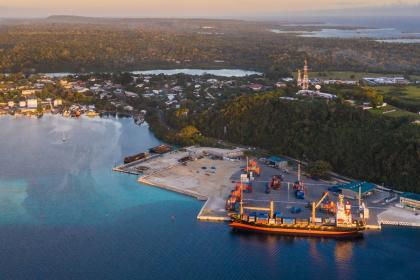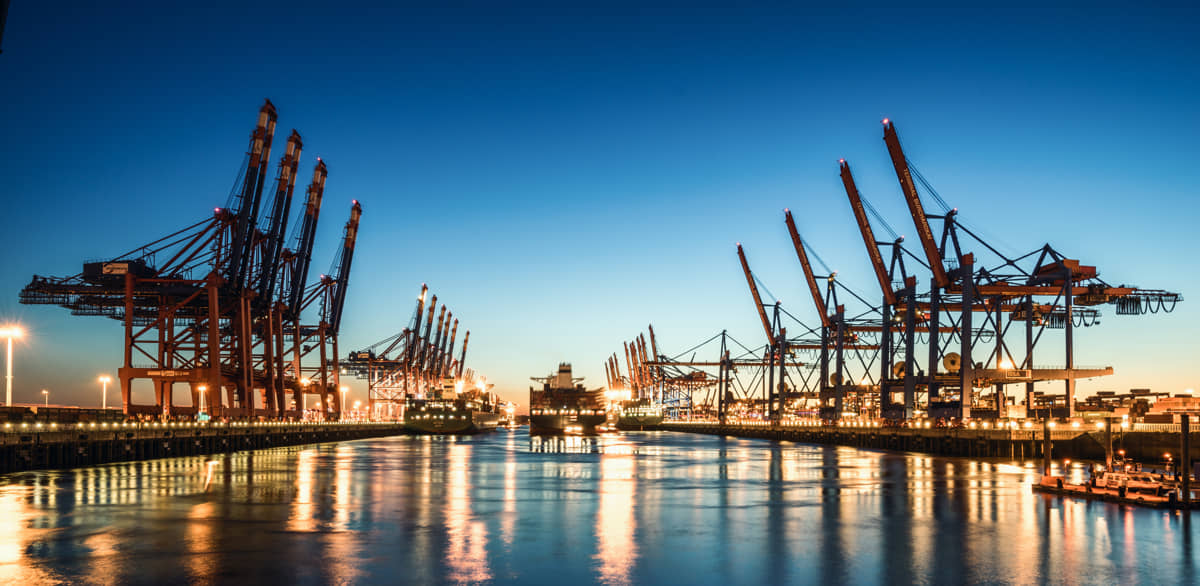The project addresses the environmental impact of cross-border trade procedures, particularly the CO2 emissions associated with inefficient, paper-based processes and procedures. Root causes of the lack of digitalization in trade procedures include the inadequate data to measure environmental impacts of trade facilitation on CO2 emissions, and low awareness among stakeholders about the benefits of climate-smart trade facilitation.
The concept of climate-smart trade facilitation was introduced in the Asia-Pacific Trade and Investment Report 2021, which highlights the potential of digital trade facilitation and green customs to reduce emissions. Indeed, many countries still rely on paper-based processes for trade, which leads to higher C02 emissions and inefficiencies. Digitalization has proven to be an important tool in reducing these impacts by reducing substantially the use of paper and the number of physical trips to fulfill the administrative requirements, contributing directly to lower Co2 emissions and increased efficiency in their trade processes.
Objective of the Project
The project, to be jointly implemented by UNCTAD and UNESCAP and, in collaboration with RCOs, aims to strengthen the capacity of three pilot countries in Africa and Asia-Pacific, specifically LDCs, LLDCs, and SIDS, to measure, calculate, and implement climate-smart trade facilitation reforms. These reforms are designed to reduce CO2 emissions and foster resilient, greener trade processes.
The project seeks to address the challenges posed by the lack of data and impact assessment related to the digitalization of cross-border trade procedures on climate change. By streamlining cross-border trade-related procedures through digitalization and improved coordination at the national level, the project aims to mitigate the environmental impact of international trade, contributing to the 2030 Agenda for Sustainable Development.
This will enhance the capacity of national stakeholders to implement and benefit from climate-smart trade facilitation reforms. The project also emphasizes inter-regional collaboration and awareness raising sessions to train border agencies and the business community on the benefits of these reforms.
Activities
Key elements of the project include:
- Creating a robust database of trade facilitation and supply chain data,
- Developing a CO2 emissions calculator for cross-border trade procedures, and
- Conducting analytical research, and
- Supporting the implementation of climate-smart trade facilitation reforms.
Intended Outcomes
Expected outcomes are the integration of climate-smart trade facilitation strategies into national development plans and the implementation of reforms that reduce CO2 emissions in international trade procedures, ultimately contributing to more resilient and sustainable trade practices. Designed to be easily replicable, the project’s results and methodologies will be disseminated for broader application by the UN system and Member States at the end of the project.
Link to the SDGs:
SDG 9: Industry, Innovation, and Infrastructure
Target SDGs:
9.1: Develop quality, reliable, sustainable, and resilient infrastructure
9.2: Promote inclusive and sustainable industrialization
9.4: Upgrade infrastructure and retrofit industries to make them sustainable
10.3: Ensure equal opportunity and reduce inequalities
11.a: Support positive economic, social, and environmental links between urban, peri-urban, and rural areas
13.2: Integrate climate change measures into national policies
17.10: Promote a universal, rules-based, open, non-discriminatory, and equitable multilateral trading system
17.18: Enhance capacity-building support to developing countries to increase significantly the availability of high-quality, timely, and reliable data
Monitoring and Evaluation:
According to DA reporting requirements, the project team will also draft project progress reports and final report according to the following timetable:
31 March 2026: 1st Annual Progress Report
31 March 2027 2nd Annual Progress Report
31 March 2028: 3rd Annual Progress Report
31 March 2029: Final Report


